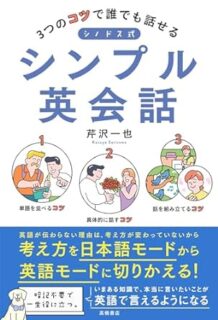2024.09.11
友だちへの「アドバイス」 上手に伝える英会話のコツ
英会話の上達のためには、文法や語彙、そしてフレーズが、実際にどう使われるのかを学ぶことがとても大切です。さて、英会話をしていて、友人に「アドバイス」を求められることがあります。そんな場合は、どうアドバイスするとよいでしょうか。アメリカのジャスティンさんに質問しました。この記事を読んで、実践的な英会話上達の極意を学びましょう!
Kaz 今回のテーマは「友だちにアドバイスするとき」です。今回も具体的なシチュエーションを設定して学んでいきましょう。
ジャスティンさん、友だちが最近彼女に振られて週末の時間を持て余しています。そこで、何かいい暇つぶしはないか聞いてきました。そんなとき、ジャスティンさんならどうアドバイスしますか?
Justin そうだね、友だちに言うなら、
Hey buddy, I’m sorry to hear about you and your ex-girlfriend. If you have too much free time on the weekend, you should go out and get some fresh air, or start a new hobby. I think something simple like hiking could be a good way to get out and refresh your mind. Reading a book at the library can also be a good way to pass time, I think.
(そっか。元カノとのこと、大変だったね。週末、暇してるなら、外に出て気分転換するとか、新しい趣味を始めてみるのもいいかもね。ハイキングとか、ちょっとしたことでもリフレッシュできると思うよ。あとは、本を読んだりするのもいいんじゃないかな。)
って感じかな。
友だちにアドバイスするときのポイントは、“you should” や “I think” を使うことだね。ただ “Try a new hobby(新しい趣味を試してみなよ)” とか “Do something simple(ちょっとしたことをやってみなよ)” って言うと、少し命令っぽく聞こえちゃうかもしれないから、“I think” や “you should” を使うことで、口調が和らぐし、フレンドリーな感じのアドバイスになるよ。
Kaz なるほど。あと、“X can be a good idea” と “X could be a good idea” という表現も使ってるけど、これも友だちにアドバイスをするときによく使うの?
Justin さすがだね! こうした表現は、アドバイスをさらに「ソフトに」するために使われているんだよ。友だちは最近振られたばかりだから、できるだけ優しくしようとしてるんだ。“X can be a good idea” や “X could be a good idea” と言うことで、アドバイスっぽく聞こえすぎないようにして、「押しつけがましさ」を感じさせないようにしているんだ。
Kaz なるほど。これは押しつけがましくなくアドバイスしたいときの、マストな表現だね。
じゃあ次は、友だちが「最近、疲れやすくて」と言ってきて、ジャスティンさんは「酒の飲みすぎだよ」と思ってる場合、でもストレートに「お前、酒飲みすぎなんだよ。酒やめろよ!」とは言えないよね? こういう場合は、酒を控えるように、どうアドバイスするの?
Justin この場合も、「やんわり」伝えたほうがいいから、“I’ve heard drinking can affect sleeping habits, maybe you should try cutting back a little on how much you’ve been drinking(お酒は睡眠に影響するって聞いたことがあるから、ちょっと控えてみたらどうかな?)”って感じで言うかな。
この文章はやんわりアドバイスするのにぴったりだね。“I’ve heard X” という表現は、あんまりアドバイスっぽく聞こえないし、“Maybe you should try…” もただの提案だから、より柔らかく感じるんだ。“cutting back(控える)” という言葉の選び方も “stopping(やめる)” と違って穏やかだしね。
全体的に、この文章のニュアンスは「それやめなさい!」という感じじゃなくて、「大変なのは分かってるから、こういう解決策もあるかもよ」っていう感じだよ。
Kaz “I’ve heard X” という表現を使ったり、“You should try” に “Maybe” を足すことで、相手を慮って優しくアドバイスしているニュアンスがでるんだね。
最後に、ジャスティンさんは将来、日本人に英語を教える先生になるんだよね。そのとき、生徒がジャスティンさんに、「一生懸命、英語を勉強しているのになかなかうまく話せるようにならないんです」と相談してきたら、どんな感じでアドバイスする?
Justin いい質問だね。ぼくなら次のように言う。
In my experience, studying hard is great for vocabulary and grammar, but to truly speak a language you have to enjoy it. If you watch a movie, watch it in English with English subtitles, if you play a game, change the game’s language to English, if you listen to music, listen to it in English. By using the language, instead of just studying, your brain will be able to adapt to the language faster. When you feel more comfortable with the language, try “shadowing” practice, where you mimic a speaker at the same time you are listening to them. It may feel a little awkward at first, but with time it can help match the rhythm and cadence of a natural speaker.
(ぼくの経験では、勉強をがんばるのはボキャブラリーや文法の習得にはとても役立つけど、本当に言葉を話せるようになるには、それを楽しむことが大切だよ。たとえば、映画を観るなら英語で観て、字幕も英語にする。ゲームをするなら、言語設定を英語に変えてみる。音楽を聴くなら、英語の曲を聴く。勉強だけじゃなくて、実際に「使う」ことで、脳が言語に早く慣れてくれるよ。言葉に慣れてきたら、シャドーイングという練習をやってみるのもいいよ。これは、スピーカーと同時に真似して話す練習で、最初はちょっと変な感じがするかもしれないけど、続けることで自然なリズムや話し方に近づけるようになるんだ。)
Kaz このシチュエーションでは、ストレートな表現でアドバイスできるんだね。“you have to enjoy it” とか “watch it in English with English subtitles”、それから “try “shadowing” practice” みたいに。これまでのシチュエーションと違って、相手の気持ちを慮る必要のないときは、“have to” や命令形などを使って、強い感じで言ってもいいということだね。
読者のみなさんも、具体的なシチュエーションを思い浮かべて、ここで出てきた表現を使って会話を組み立ててみてください。そして、何度も音読練習してくださいね。そうすれば、友だちに上手にアドバイスできるようになりますよ!
もっとも効率的で効果が高い英会話学習法!
「シノドス式シンプルイングリッシュ」をはじめませんか?
たんに単語や文法、フレーズを記憶するだけでは、英語は話せるようになりません。
「簡単な英語なのに、その場でとっさに出てこない!」
「意見はあるのに、英語でうまく伝えられない!」
多くの学習者が抱えるこうした悩みの原因は、日本語で発想してしまうことにあります。
日本語で考えているかぎり、いつまでたっても英会話は上達しません。
では、どうすればいいのか?
カギとなるのは「語順」です。
英語の語順感覚を身につければ、自然に英語で発想できるようになります。
しかし、そのためには特別なトレーニングが必要です。
「シノドス式シンプルイングリッシュ」は、このために独自に開発された英語学習法です。
もしあなたが英会話でお悩みなら、この学習法を強くオススメします!



